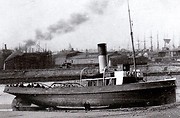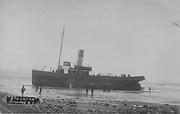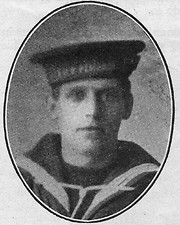 Hartlepool Sports & Leisure
Hartlepool Sports & Leisure
- Cinemas, Theatres & Dance Halls
- Musicians & Bands
- At the Seaside
- Parks & Gardens
- Caravans & Camping
- Sport
 Hartlepool Transport
Hartlepool Transport
- Airfields & Aircraft
- Railways
- Buses & Commercial Vehicles
- Cars & Motorbikes
- The Ferry
- Horse drawn vehicles
 A Potted History Of Hartlepool
A Potted History Of Hartlepool
- Unidentified images
- Sources of information
- Archaeology & Ancient History
- Local Government
- Printed Notices & Papers
- Aerial Photographs
- Events, Visitors & VIPs
 Hartlepool Trade & Industry
Hartlepool Trade & Industry
- Trade Fairs
- Local businesses
- Iron & Steel
- Shops & Shopping
- Fishing industry
- Farming & Rural Landscape
- Pubs, Clubs & Hotels
 Hartlepool Health & Education
Hartlepool Health & Education
- Schools & Colleges
- Hospitals & Workhouses
- Public Health & Utilities
- Ambulance Service
- Police Services
- Fire Services
 Hartlepool People
Hartlepool People
 Hartlepool Places
Hartlepool Places
 Hartlepool at War
Hartlepool at War
 Hartlepool Ships & Shipping
Hartlepool Ships & Shipping

Stranton Gallery
Gallery images
Related items :
 North Eastern Railway Company
North Eastern Railway Company
The West Hartlepool Harbour and Railway Company was amalgamated with the larger North Eastern Railway Co. The terms were finalised on 1 July 1865. Between 1867 and 1870 Ralph Ward Jackson, Robinson Watson and others co-owned vessels with the Company.
More detail » Stranton (1899) - a general history
Stranton (1899) - a general history
Official No. 107000: Code Letters JHRC.
Owners: 1899 North Eastern Railway Co, York, West Hartlepool; London & North Eastern Railway, West Hartlepool; November 1914 Admiralty requisition-renamed Char.
Masters: 1903-09 RT Wilkinson; 1915 Lieutenant John Peacock.
On 16 January 1915 Char was alongside the Belgian steamer Erivan in the Thames Estuary & was attempting to board her for an inspection. There was a fierce gale blowing at the time & the two vessels collided leaving the Char badly damaged & drifting with cries for help from the crew heard above the wind. Signals were sent to call out the Deal lifeboat which searched for around 12 hours in hurricane force winds & darkness but was unable to find any trace of the vessel. It was thought that she drifted onto the Goodwin Sands & foundered there. All three officers & 15 crew lost at sea.
Lives lost January 1915:
Booth, Edward, fireman, 22, Dover St. West Hartlepool
Booth, William, 1st engineer, 58, Dover St. West Hartlepool
(the above were father & son)
Darch, Alfred Percy, private, 23, Taunton, Somerset
Dodd, John, wireless telegraph operator, 30, Manchester
Duchemin, Camille Alfred, seaman, 26, Jersey
Fergus, Ralph, mate, Dent St. West Hartlepool
Hastings, Matthew, deck hand, 20, Wells Yard, Hartlepool
Hatch, William, fireman, 24, Alma St. West Hartlepool
Hunter, John E, fireman, Sheriff St. West Hartlepool
Melsome, Lieutenant Robert Percy, 28, b. Hursley, Hants.
Nossiter, George, 2nd engineer, 48, Wolviston
Park, James, stoker, 31, South Shields
Powell, Clement Arthur, officer’s steward 3rd class, 19, Woodford, London
Robinson, William Henry, corporal, 34, Plympton, South Devon
Stephens, Charles Wesley, wireless telegraph operator, 32, Manchester
Thomson, Gordon, seaman, 22, Aberdeen
Whale, Lieutenant John Peacock, master, South Shields
Whittle, Lieutenant Harold Worsley, 26, Edinburgh
 Stranton - Ashore on Middleton Beach (1)
Stranton - Ashore on Middleton Beach (1)
 Created by unknown
Donated by Hartlepool Museum Service
Created by unknown
Donated by Hartlepool Museum ServiceDated 1913
The N.E.R. tug Stranton, ashore on Middleton beach in 1913.
More detail » Stranton and the Meda
Stranton and the Meda
The following extracts are from 1913 and 1915 issues of the North Eastern Railway Magazine:
1913: Exciting scenes were witnessed at West Hartlepool on the night of May 8th, when the Swedish barquentine Meda, bound from Vastervik with a cargo of pit-props, broke her tow rope and, drifting towards the south pier, grounded to become a total wreck. The vessel has since been dismantled and her cargo sold.
The tug-boat engaged was the Stranton, belonging to the N.E.R. Company, the crew of which made a gallant effort to throw another rope to the helpless sailing ship. Ere this could be done however, another mishap occurred. The Stranton’s twin propellors coming into contact with some obstacle were almost stripped and rendered useless. It was now the Stranton’s turn to drift and it also stranded, about 600 yards from the Middleton beach. The crews of both vessels were taken off by lifeboat, but a second visit had to be paid to the Stranton before the men could be induced to leave and then they only did so on the advice of Captain Standing, Assistant Dockmaster, who accompanied the lifeboat.
Captain J. Whales of the Stranton elected to remain on board and did so despite the danger. The Hartlepool Life-Saving Brigade took up a position on the Middleton pier and fired a rocket across the ttug-boat but happily their services were not required. The Stranton drifted further on to the beach and when the tide receded next day was left “high and dry”. It has since been refloated and at the time of writing is undergoing repairs at Newcastle.
1915: On 8 May 1913, Stranton went to the aid of a Swedish barque Meda which had broken free from her mooring ropes at Hartlepool docks and grounded where it looked like she would surely be wrecked. Whilst the Meda was drifting, the North Eastern Railway crew of the Stranton made many attempts to throw lines to the helpless crew. Then the two propellers of the Stranton struck an unknown obstacle, almost entirely stripping them and making Stranton just as useless as Meda, and she began to drift too, the would-be rescuer now in need of rescue herself. Hartlepool’s RNLI lifeboat arrived on scene and took off the crew of both the Meda and the Stranton, however not without difficulty;
A second visit had to be made to the ‘Stranton’ before the men could be induced to leave and then they only did so on the advice of Captain Standing, Assistant Dock Master, who accompanied the Lifeboat. Captain J Whales, of the Stranton, elected to remain on board and did so despite the danger. Eventually the Stranton drifted up Middleton Beach and when the tide receded was left clear out of the water, the severe damage to her propellers becoming apparent. The Stranton was floated soon after and towed to Newcastle where she was repaired and re-entered service at West Hartlepool.
More detail » Stranton - Ashore on Middleton Beach (2)
Stranton - Ashore on Middleton Beach (2)
 Created by unknown
Donated by Mr. Stan Wolfe
Created by unknown
Donated by Mr. Stan WolfeDated 1913
A photograph of the N.E.R. steam tug Stranton ashore on Middleton beach in 1913.
More detail » William Hatch
William Hatch
 Created by N.E.R. Magazine
Donated by N.E.R. Magazine
Created by N.E.R. Magazine
Donated by N.E.R. MagazineA photograph of William Hatch which appeared in an issue of the N.E.R. Magazine in 1915.
More detail »



